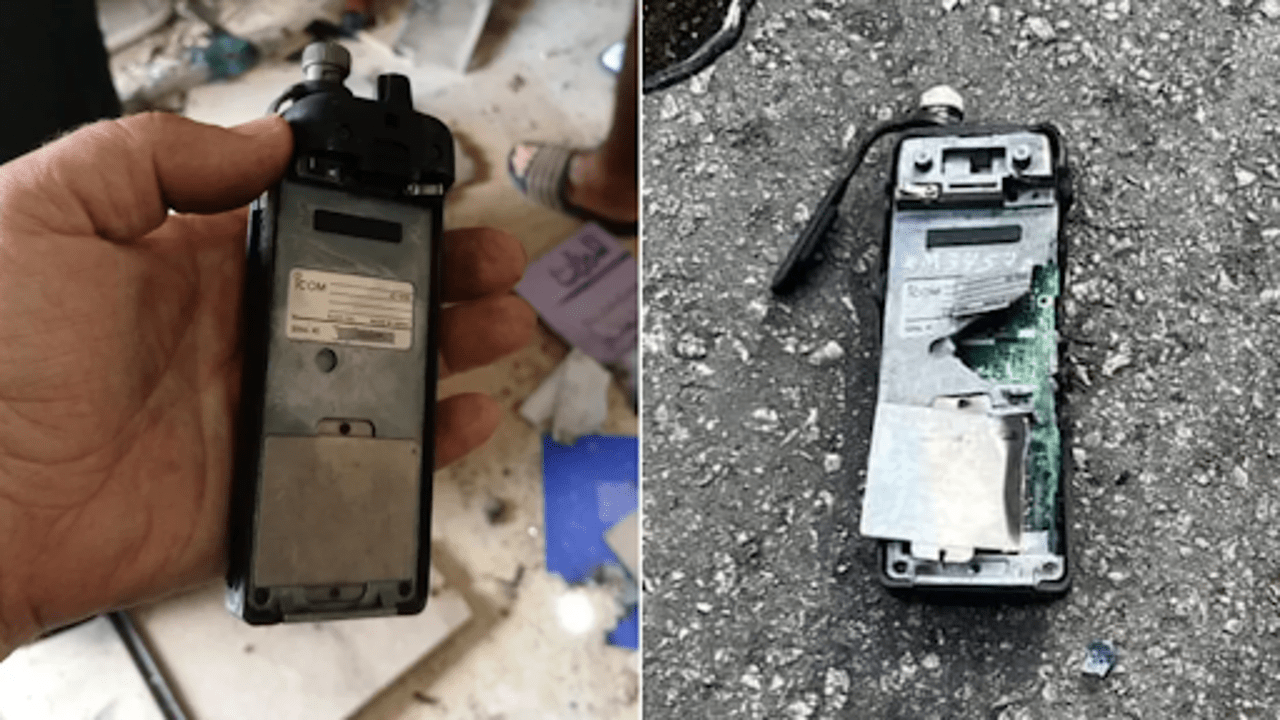
Two devices were left damaged following the explosions on Wednesday. CNN
Israel has announced the start of a “new era” of conflict following a series of dramatic attacks on Hezbollah. This recent escalation has pushed the Middle East closer to a larger conflict, with multiple explosions shaking Lebanon in recent days.
On Tuesday, attacks targeting Hezbollah’s pagers resulted in numerous casualties, including children, and left over 2,800 people injured. Just one day later, Lebanon experienced further devastation as walkie-talkies exploded in various locations, including Beirut and southern parts of the country. These new blasts claimed at least 20 lives and injured more than 450 people, according to Lebanon’s health ministry.
Israeli Defense Minister Yoav Gallant, while visiting a military base in northern Israel, acknowledged the growing conflict without directly commenting on the previous day's attacks. He stated, “We are at the beginning of a new era in this war and we need to adapt ourselves.” Gallant praised the efforts of the Israel Defense Forces (IDF), the Shin Bet security agency, and Mossad, Israel’s intelligence agency. This comment is seen as the first official acknowledgment of Israel's involvement in the attacks on Hezbollah.
Smoke billows from a mobile phone store in Sidon, south of Beirut, on Wednesday. CNN
An Israeli source familiar with national security later revealed that the attacks on the pagers were part of a strategic move by Israel. They believed Hezbollah had become aware of this tactic, prompting an immediate response.
The day before these attacks, Israel had set a new war objective: ensuring the safe return of residents from areas near its border with Lebanon. This objective aims to address the displacement of tens of thousands of people from southern Lebanon and northern Israel due to ongoing hostilities between Hezbollah and Israel. Prime Minister Benjamin Netanyahu reiterated his commitment to safely returning these residents to their homes.
In response to the escalating situation, Israel is shifting its military focus. The IDF is relocating its elite 98th Division from Gaza to northern Israel, reflecting a strategic pivot towards the north.
On Wednesday, Lebanese Red Cross teams worked tirelessly to assist those affected by the latest explosions. Witnesses described chaotic scenes as walkie-talkies, which had been rigged to explode, went off during a Hezbollah funeral in Beirut’s southern suburbs. The explosions caused significant damage, including fires in homes and shops.
Lebanon’s communications ministry identified the walkie-talkies involved as outdated models made by Japanese company ICOM. ICOM stated it is investigating the incidents but noted that these devices were discontinued a decade ago and could be counterfeit.
An ambulance moves through a southern Beirut neighborhood following the explosions. AP Photo
Hezbollah has vowed retaliation for the earlier pager attacks, which have been condemned as a violation of international humanitarian law by UN Human Rights Chief Volker Türk. The UN has called for a thorough investigation into the attacks.
The ongoing violence and the use of low-tech communication devices as weapons have heightened fears of a broader conflict. The United Nations Secretary-General Antonio Guterres has urged all parties to prevent further escalation. Lebanon’s Foreign Minister Abdallah Bou Habib expressed concerns that the attacks could signal the start of a larger war and has called for international assistance to restore peace.
Security analysts suggest that Israel’s disruption of Hezbollah’s communication network could be preparing the ground for a major military operation. The destruction of Hezbollah’s ability to coordinate and communicate effectively may leave the group vulnerable to further Israeli actions.















